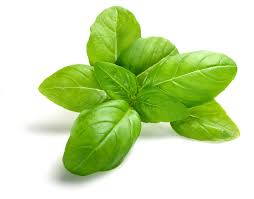basil
英 ['bæz(ə)l; -zɪl]
美 ['bæzl]
basil 罗勒(芳香叶子植物)来自希腊语, basileus, 国王。该植物通常被用作王室香料。
- basil (n.)
- aromatic shrubby plant, early 15c., from Old French basile (15c., Modern French basilic), from Medieval Latin basilicum, from Greek basilikon (phyton) "royal (plant)," from basileus "king" (see Basil). So called, probably, because it was believed to have been used in making royal perfumes. In Latin, confused with basiliscus (see basilisk) because it was supposed to be an antidote to the basilisk's venom.
- Basil
- masc. proper name, from Latin Basilius, from Greek Basileios "kingly, royal," from basileus "king," which is of unknown origin, possibly from a language of Asia Minor (compare Lydian battos "king").
- 1. There'snothing like fresh basil to put a zing into a tomato sauce.
- 在番茄沙司中无论加入什么都不如加一点儿新鲜的紫苏更能提味。
来自柯林斯例句
- 2. Tear fresh basil into pieces and add it to the sauce.
- 把紫苏撕成碎片加到调料里.
来自超越目标英语 第3册
- 3. I see that Basil is in one of his sulky moods.
- 我觉得贝西尔现在情绪很低沉.
来自辞典例句
- 4. Days in summer, Basil , are apt to linger.
- 夏日悠悠, 贝西尔.
来自辞典例句
- 5. Sir. Basil contributed a non - committal " Possibly ".
- 巴兹尔 爵士不可 置 否地敬奉了一句 “ 大概是的 ”.
来自辞典例句
[ basil 造句 ]
